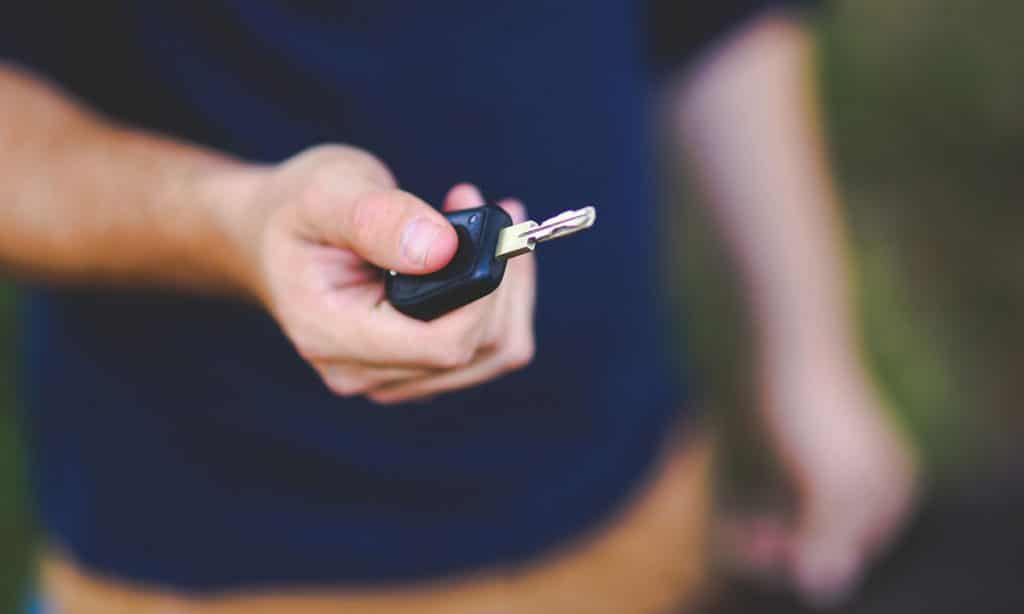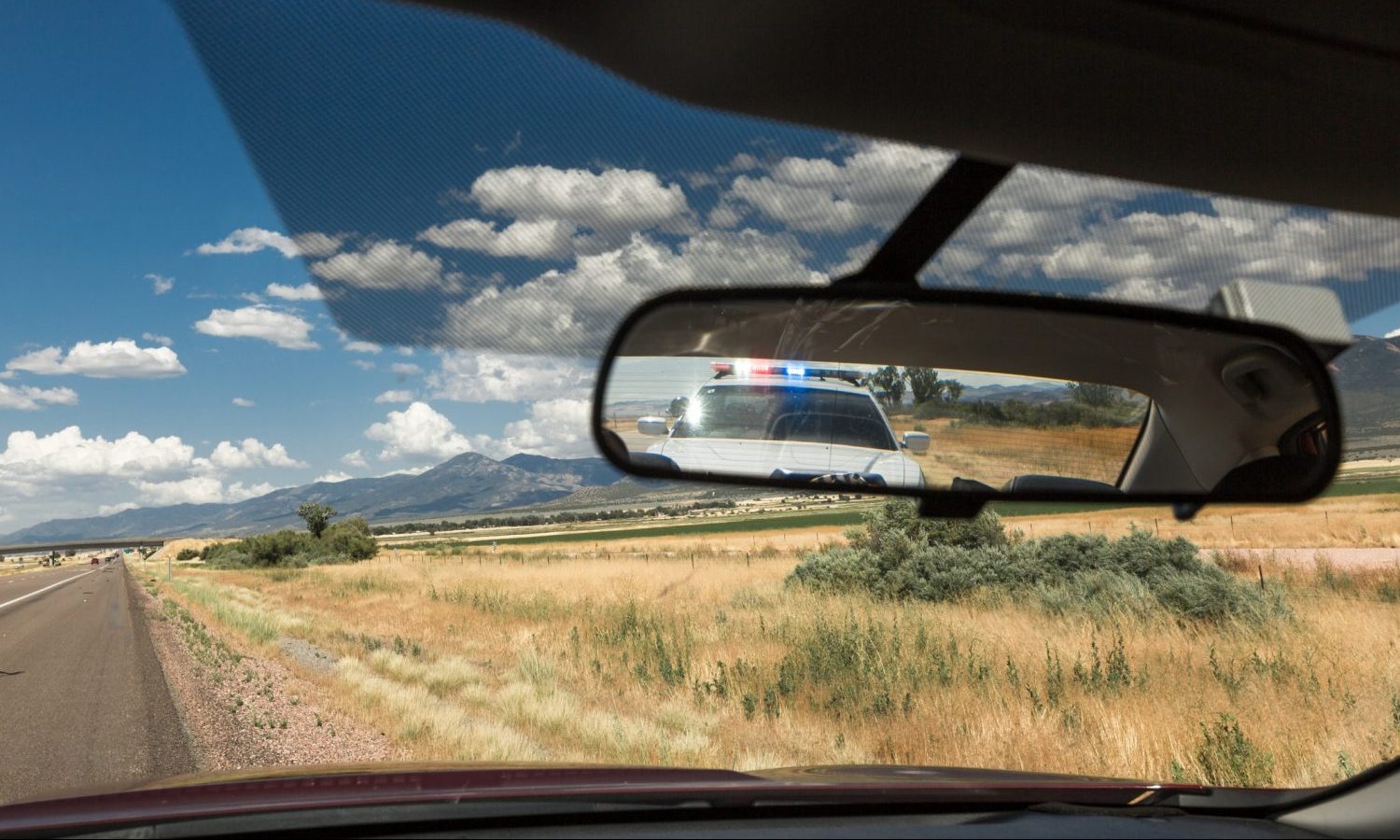Unlike the breathalyzer, which can detect alcohol impairment within seconds, Indiana’s new drug test experiment only shows that a motorist has used drugs.
As more states work to loosen their marijuana laws, and in many cases, make it part of legal society, some are still clinging to antiquated Drug War concepts in an attempt to disrupt progress. Indiana is one of those states. Not only are officials refusing to consider legitimizing cannabis for medicinal or recreational purposes, they are also, at the same time, imposing policies that will undoubtedly lead to more marijuana-related arrests.
The state recently announced that law enforcement agencies are now using a new roadside drug detection tool to stop drugged driving. However, the test is seriously flawed and could put innocent people in jail.
More than 50 police forces all over the state (including Evansville, Fort Wayne, Indianapolis, Lake County and Muncie) have started using a roadside drug detection device that can determine, within minutes, whether a person has illegal substances coursing through their veins.
The device, known as the SoToxa Mobile Test System, is supposed to sniff out drivers high on cocaine, opiates, meth, and, of course, marijuana. The test’s manufacturer touts its ability to flag stoned motorists within five minutes by testing their saliva. The problem with this technology is that it scans explicitly for the presence of illegal drugs, not intoxication, making it possible for more sober motorists throughout Indiana to be prosecuted for stoned driving in 2021.
What’s the difference between presence and intoxication?
Unlike the breathalyzer, which can detect alcohol impairment within seconds, Indiana’s new drug test experiment only shows that a motorist has used drugs. In the case of a marijuana user, they may have smoked pot within the last 24 hours or so — long enough to be free of the intoxicating effects — but they could still fail this roadside sobriety check.
Swab tests like this one look for THC that lingers in the saliva before the body metabolizes it. However, the test doesn’t indicate when the pot consumption occurred. Therefore, a driver who smoked weed yesterday could be dragged to jail today, the same as the person driving around under the influence.

Not only is this roadside test unfair, but it’s also supported by a mostly unbeatable system.
Indiana has a zero-tolerance policy for drugged driving, as outlined in Indiana Code Annotated, Section 9-30-5-1 and Section 9-30-5-2. No matter how much of an illegal substance a motorist has in their body, they are going to jail for stoned driving if a cop pulls them over and asks them to take a sobriety test.
A first offense is the equivalent of a DUI for alcohol. It is punishable with up to 60 days in jail and fines reaching $500.
RELATED: These Drivers Test Positive For Marijuana More Than Any Other Substance
But in most cases, jail isn’t the concern; it’s the compromise to staying among society that takes its toll. Typically, the offender can escape two months in county lockup by agreeing to a year-long probationary term. The stipulations of that agreement often come with community service hours, a license suspension, drug and alcohol classes, fees and fines, random drug tests, and monthly visits with a probation officer. It’s a total abstinence program, too, so not only does the offender have to refrain from using marijuana, but they also have to stay away from alcohol.

And the program is expensive. The average DUI conviction in Indiana can cost a person in upwards of $10,000 by the time it is all said and done. Failing to uphold any part of the agreement (not paying fees on schedule or failing a drug test) can result in further disciplinary action, including jail time.
RELATED: Colorado Marijuana Users Think Stoned Driving Policies Are Out Of Touch
Ever since neighboring states like Illinois and Michigan legalized marijuana for recreational use, there has been a lot of pressure on Indiana to do the same. The argument is that Hoosiers will inevitably traffic marijuana into Indiana from legal states, which could run law enforcement ragged.
Cannabis advocates believe Indiana should legalize it, giving police forces more time to focus on serious crime and allow the state to benefit from millions in tax revenue. But neither the State Legislature nor Governor Eric Holcomb is interested in this plan. Instead, their attitude seems to be more about increased enforcement — creating ways to simplify how cops make marijuana-related arrests. After all, prohibition can be as big of a money-maker as legalization. Police agencies, prisons, and even politicians continue to make millions of dollars by keeping marijuana in the underground. Meanwhile, otherwise law-abiding, tax paying citizens often get caught paying the tab.
RELATED: How CBD And THC Affect Your Driving, According To Landmark Study
But legal experts say you can fight this charge.
“The good news is that this isn’t your typical DUI case because you haven’t been accused of driving with alcohol in your system; you’ve been accused of having marijuana in your system,” according to the website of Terre Haute-based attorney Rowdy G. Williams. “There isn’t a breathalyzer that can detect the amounts of marijuana you have in your system, and because marijuana can remain in your system for an extended period of time if you are a habitual user, you might not have been high at the time of your arrest. Your lawyer can also argue that your stop was unlawful if law enforcement had no probable cause to pull you over.”


